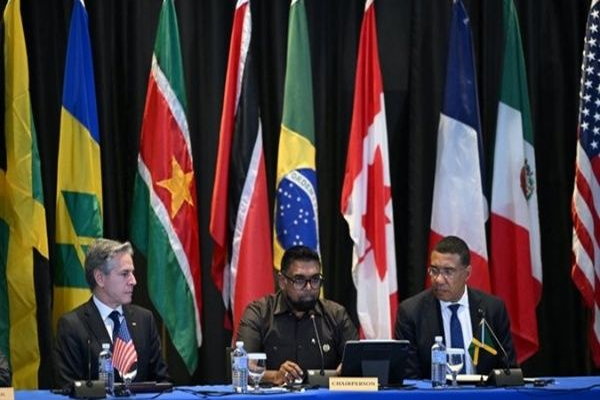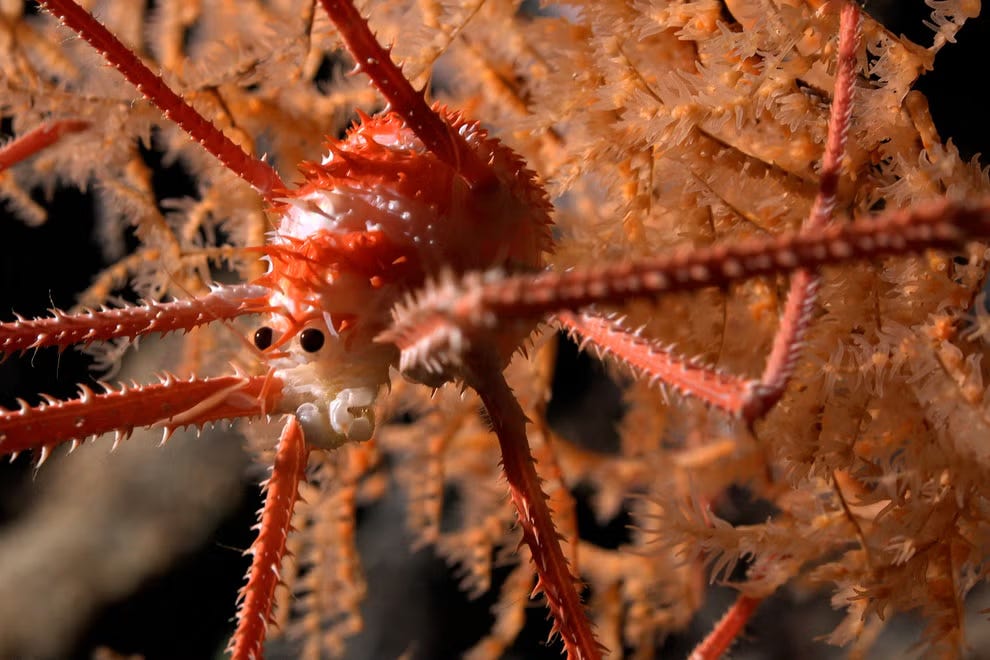
Latin America Daily Briefing
Haitian Prime Minister Ariel Henry said he would resign once a transitional government is established. He made the announcement late last night, hours after Caribbean leaders and U.S. Secretary of State Antony Blinken met in Jamaica to discuss Haiti’s crisis and agreed to a joint proposal to establish a transitional council, reports the Associated Press.
Videos distributed on Haitian social media appeared to show celebrations in the street, with people dancing to music in a party atmosphere and fireworks launched into the night sky, reports Reuters. Henry’s government was widely viewed as corrupt and also illegitimate because it repeatedly failed to hold elections, notes the Guardian.
”The plan, which takes pieces from seven different proposals by Haitian leaders presented to leaders of the 15-member Caribbean Community regional bloc known as CARICOM, would set up a seven-member presidential panel that would appoint a new interim prime minister. Both the prime minister and the panel, which will also include two observers, will preside over the day-to-day governance of Haiti, a transition to elections and prepare for the arrival of a multinational security support mission,” reports the Miami Herald.
The CARICOM plan would not include any of the leaders of the violent street gangs that have been carrying out an armed rebellion in Haiti for nearly two weeks, aimed at toppling the Henry administration — raising the question for many observers of how sustainable such a solution would be, reports the Miami Herald.
Anyonewho is under indictment or U.N. sanctions, or anyone who has been convicted of a crime, will be ineligible to serve on the council — that includes some of the most powerful men in Haiti at the moment: gang leader Jimmy “Barbecue” Chérizier and former coup-leader Guy Phillipe. Those who oppose a U.N.-backed, Kenya-led security mission to Haiti will also be barred from participating, reports the Washington Post.
While leaders met in Jamaica yesterday behind closed doors, Chérizier, one of Haiti’s most powerful gang leaders, told reporters that Haitians must decide the country’s leadership and government model, and if the international community continues down the current road, “it will plunge Haiti into further chaos.” (Associated Press)
On Monday, Blinken announced an additional $100 million to finance the deployment of a multinational force to Haiti, plus another $33 million in humanitarian aid. “We can help. We can help restore a foundation of security,” Blinken said. “Only the Haitian people can, and only the Haitian people should determine their own future, not anyone else.” (New York Times)
More Haiti
- Haitian authorities say security forces wrested control of the Port-au-Prince port back from gangs, reports Le Nouvelliste.
- The multinational mission to bolster Haiti’s police, to be led by Kenya, seems likely to be too little too late write Shannon K. O’Neil and Will Freeman at the Council on Foreign Relations.
- CARICOM “should urgently develop a regional strategy for dealing with the Haitian refugee question,” according to an editorial at The Gleaner. (Via Americas Migration Brief)

Colombia
- A peace deal between the Estado Mayor Central and the Colombian government is unlikely before President Gustavo Petro finishes his term in 2026, despite trust between the two sides, a major leader of the FARC dissident group told Reuters on the sidelines of peace talks. The “comments are the latest to pour cold water on Petro’s hopes of ending Colombia’s conflict.”
- Petro, Colombia’s first progressive president, faces a host of obstacles to his governance agenda — some exogenous and some of his own making, reports NPR.
Regional
- Short-term security gains under Ecuador’s militarized security strategy raise significant questions about mano dura approaches, writes James Bosworth at Latin America Risk Report. “A big question is whether El Salvador is a new model or an outlier in terms of its success in reducing violence (ignoring for a moment all the corruption and democratic decline that have come with it). What happens in Ecuador in the coming months may point to answering that question.”
- Nicaraguan dissidents have been persecuted in exile in Costa Rica, reports El País, citing a change in climate under the government of Rodrigo Chaves who said he is friendly with Daniel Ortega. (via Americas Migration Brief)
Brazil
- Brazilian President Luiz Inácio Lula da Silva plans to present the country’s stance on artificial intelligence (AI) to the world later this year. “As the president of the G20 and BRICS next year, Lula stressed the importance of shaping the Global South’s agenda around AI,” reports Forbes.
- Fueled by surging global demand for food, particularly from China, Brazil’s agricultural sector has emerged as a key economic engine in recent years, reports the Financial Times.
- In recent years, infrastructure mega-projects, large-scale cattle farming operations and soy plantations have driven up land prices in settled regions of the Brazilian Amazon, a spike that, combined with other factors, pushed many family farmers to sell and move farther afield, “perpetuating a cycle of displacement and deforestation,” reports the Guardian.
Venezuela
- The murder of a former Venezuelan military official in Chile seems to mark a new phase in criminal evolution of Venezuela’s Tren de Aragua crime group, reports InSight Crime.
Critter Corner
- Over 100 new species have been found living on an underwater mountain off the coast of Chile in a “mind-blowing” discovery by scientists. (Independent)

Jordana Timerman / Latin America Daily Briefing
http://latinamericadailybriefing.blogspot 03 12 2024







